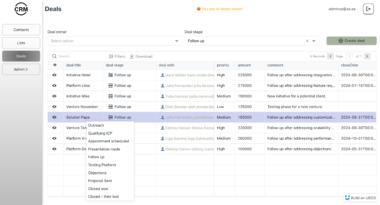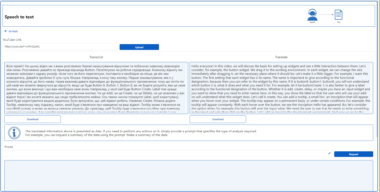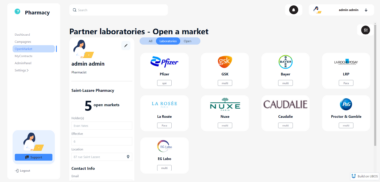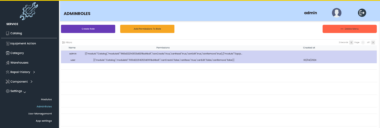MCP Server Example
This repository contains an implementation of a Model Context Protocol (MCP) server for educational purposes. This code demonstrates how to build a functional MCP server that can integrate with various LLM clients.
To follow the complete tutorial, please refer to theYouTube video tutorial.
What is MCP?
MCP (Model Context Protocol) is an open protocol that standardizes how applications provide context to LLMs. Think of MCP like a USB-C port for AI applications - it provides a standardized way to connect AI models to different data sources and tools.

Key Benefits
- A growing list of pre-built integrations that your LLM can directly plug into
- Flexibility to switch between LLM providers and vendors
- Best practices for securing your data within your infrastructure
Architecture Overview
MCP follows a client-server architecture where a host application can connect to multiple servers:
- MCP Hosts: Programs like Claude Desktop, IDEs, or AI tools that want to access data through MCP
- MCP Clients: Protocol clients that maintain 1:1 connections with servers
- MCP Servers: Lightweight programs that expose specific capabilities through the standardized Model Context Protocol
- Data Sources: Both local (files, databases) and remote services (APIs) that MCP servers can access
Core MCP Concepts
MCP servers can provide three main types of capabilities:
- Resources: File-like data that can be read by clients (like API responses or file contents)
- Tools: Functions that can be called by the LLM (with user approval)
- Prompts: Pre-written templates that help users accomplish specific tasks
System Requirements
- Python 3.10 or higher
- MCP SDK 1.2.0 or higher
uvpackage manager
Getting Started
Installing uv Package Manager
On MacOS/Linux:
curl -LsSf https://astral.sh/uv/install.sh | sh
Make sure to restart your terminal afterwards to ensure that the uv command gets picked up.
Project Setup
- Create and initialize the project:
# Create a new directory for our project
uv init mcp-server
cd mcp-server
# Create virtual environment and activate it
uv venv
source .venv/bin/activate # On Windows use: .venvScriptsactivate
# Install dependencies
uv add "mcp[cli]" httpx
- Create the server implementation file:
touch main.py
Running the Server
- Start the MCP server:
uv run main.py
- The server will start and be ready to accept connections
Connecting to Claude Desktop
- Install Claude Desktop from the official website
- Configure Claude Desktop to use your MCP server:
Edit ~/Library/Application Support/Claude/claude_desktop_config.json:
{
"mcpServers": {
"mcp-server": {
"command": "uv", # It's better to use the absolute path to the uv command
"args": [
"--directory",
"/ABSOLUTE/PATH/TO/YOUR/mcp-server",
"run",
"main.py"
]
}
}
}
- Restart Claude Desktop
Troubleshooting
If your server isn’t being picked up by Claude Desktop:
- Check the configuration file path and permissions
- Verify the absolute path in the configuration is correct
- Ensure uv is properly installed and accessible
- Check Claude Desktop logs for any error messages
License
This project is licensed under the MIT License. See the LICENSE file for details.
MCP Server Example
Project Details
- alejandro-ao/mcp-server-example
- Other
- Last Updated: 4/20/2025
Categories
Recomended MCP Servers

MCP server for merging multiple files into one

A Model Context Protocol (MCP) server to provide git tools for LLM Agents


A Model Context Protocol (MCP) server that provides call graph analysis capabilities to LLMs through the nuanced library
Model Context Protocol server for managing, storing, and providing prompts and prompt templates for LLM interactions.
A powerful Model Context Protocol (MCP) server that provides an all-in-one solution for public web access.
MCP server providing a knowledge graph implementation with semantic search capabilities powered by Qdrant vector database
An MCP tool that provides AI with the ability to compress and decompress local files.
A Model Context Protocol (MCP) server enabling AI assistants to interact with Azure DevOps services via Python SDK.
A lightweight mcp server that tells you exactly what time is it based on your IP.
MCP Think tool prebuilt binaries and code
 From vibe coding to vibe deployment. UBOS MCP turns ideas into infra with one message.
From vibe coding to vibe deployment. UBOS MCP turns ideas into infra with one message.






